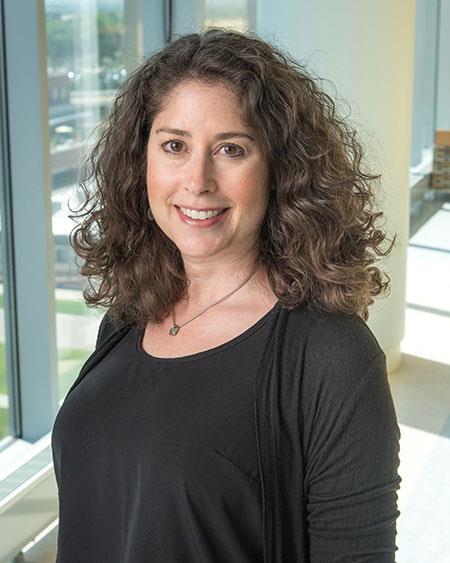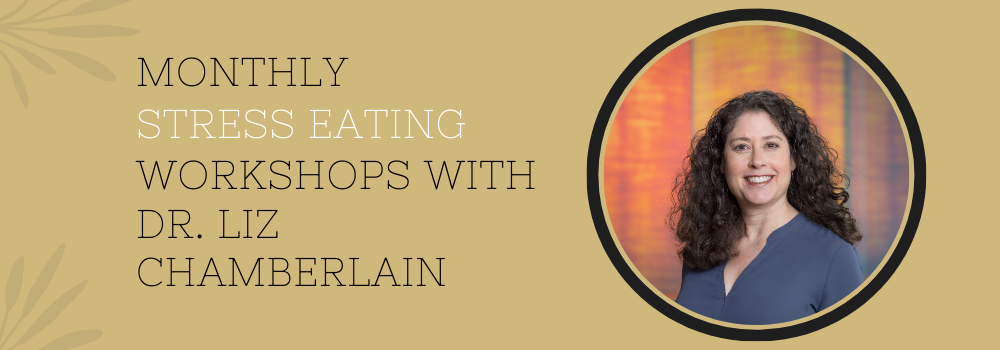Meal Replacement Clearance — 80% Off!
Last Chance! Everything must go — 80% off, now only $10 each!
Shop NowBehavioral Health
Meet our Licensed Psychologist, Dr. Liz Chamberlain
Assistant Professor, Faculty Wellness Advisor, Department of Psychiatry

Education
BA, University of Michigan, Ann Arbor
PhD Counseling Psychology, University of North Texas
Areas of Specialization
Mindfulness-Based Cognitive Therapy for Stress, Depression, and Anxiety
Navigating Changes and Life Transitions
Gottman Couples Therapy – Improving Connection in Relationships
Mindfulness and Emotional Intelligence in the Workplace
Healthy Relationships with Food and Eating
Enhancing Mind-Body Connection
Philosophy
“Between stimulus and response there is a space. In that space is our power to choose our response. In our response lies our growth and our freedom.” – Viktor Frankl
Personal Notes
Grew up in Colorado – happy to have returned “home” after 20 years away
Loves yoga, hiking, skiing, snowshoeing
Second Place in Denver Post 2013 Peeps Diorama Contest
Shared Content Block:
Styles -- all pages
Why Talk to a Psychologist?
Psychologists help people with a broad range of health and relationship concerns every day, using evidence-based treatments to help people improve their lives. To learn more, see this link from the American Psychological Association. To learn more about how psychologists help with weight management, click here.
Discover Your 'Blind Spots'
We all have our blind spots – it’s hard to see choices and possible solutions by ourselves. A psychologist can help find new ways to view problems and generate alternatives that work for you.


Learn New Strategies to Increase Well-being
A good friend can listen, but a psychologist can help you learn new skills to help yourself when you are feeling overwhelmed or are unsure how to make changes or move forward.
Manage Stress and Relationships
Learn new ways to navigate difficulties and find strategies to join against a problem or join with your partner against problems that arise in your relationship. For more research-based relationship tools, explore The Gottman Institute Blog.
Improve Your Relationship with Food
Have you ever found yourself having a “snaccident?” Eating more than you anticipated, often mindlessly? You’re not alone! Everyone eats for reasons other than hunger – we often soothe with food or eat when stressed. Learn more here.


Join Dr. Liz Chamberlain to learn evidence-supported, hands-on tools and strategies to support the habits that can contribute to success in managing weight.
All workshops will be held virtually via Zoom from 4-5 p.m. on the 2nd Tuesday of the month. 15 minutes for Q&As will also be available for participants.
Click here to view and download the workshop's resource handout.
Snaccidents and How to Tame Them: Mindless Eating Workshop
Ever suddenly found yourself eating a whole bag of chips without realizing it? You’re not alone! Join our workshop to identify your personal mindless eating habits and identify new strategies to stop snaccidents before they happen.
Dates: February 11, 2025; May 13, 2025; August 12, 2025
Sign up!
Stress Eating Workshop: Alternatives to Notice and Manage Difficult Experiences
Participants will learn new strategies to notice and approach stressful feelings and thoughts and discover other solutions than food to soothe.
Dates: March 11, 2025; June 8, 2025; October 14, 2025
Sign up!
Hacking Habits Workshop: Finding Real Ways to Get Your Reward
Have you ever noticed that empty feeling after indulging a craving? Many times, we eat for reasons other than hunger without really knowing what reward we are truly seeking. Participants will explore their own habit patterns and will learn to identify triggers and rewards and generate alternatives to overeating.
Dates: April 8, 2025; July 8, 2025; October 14, 2025
